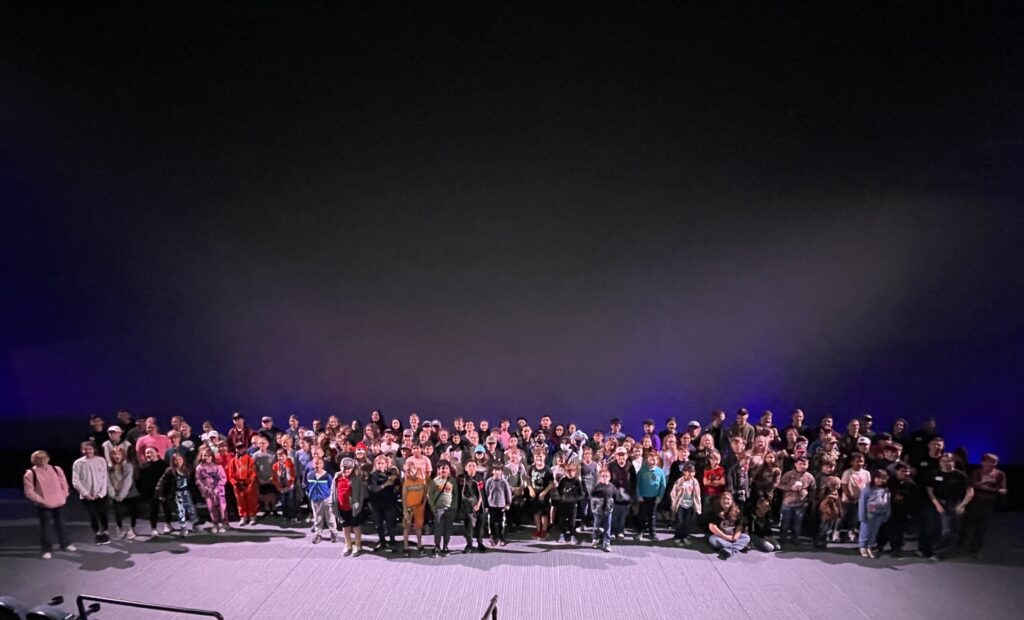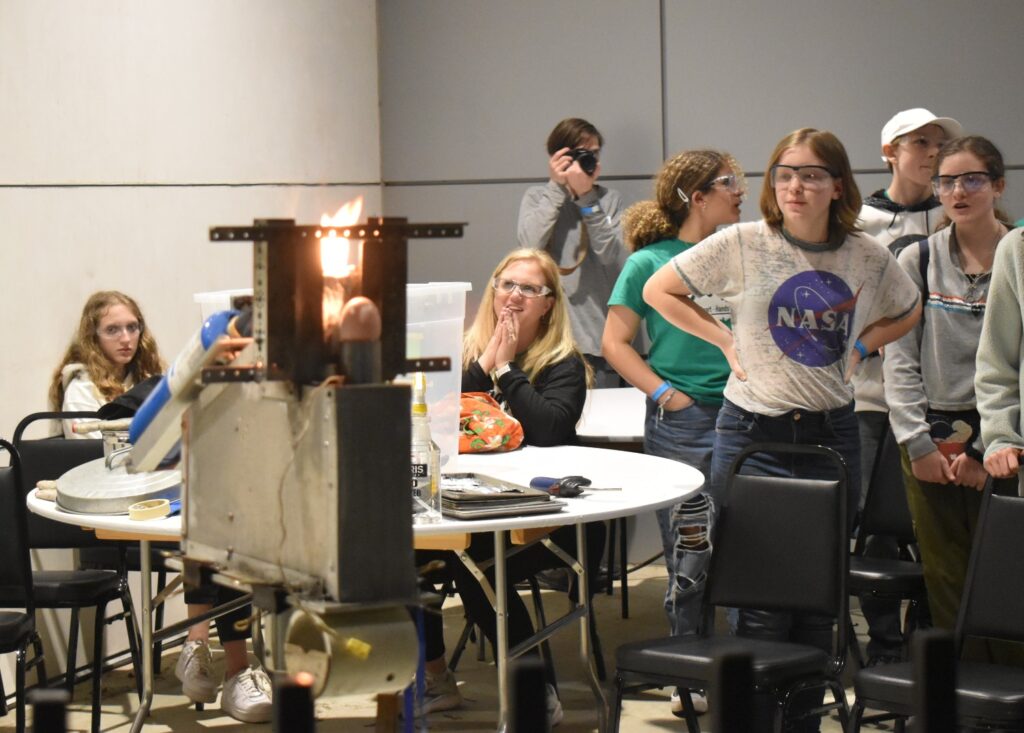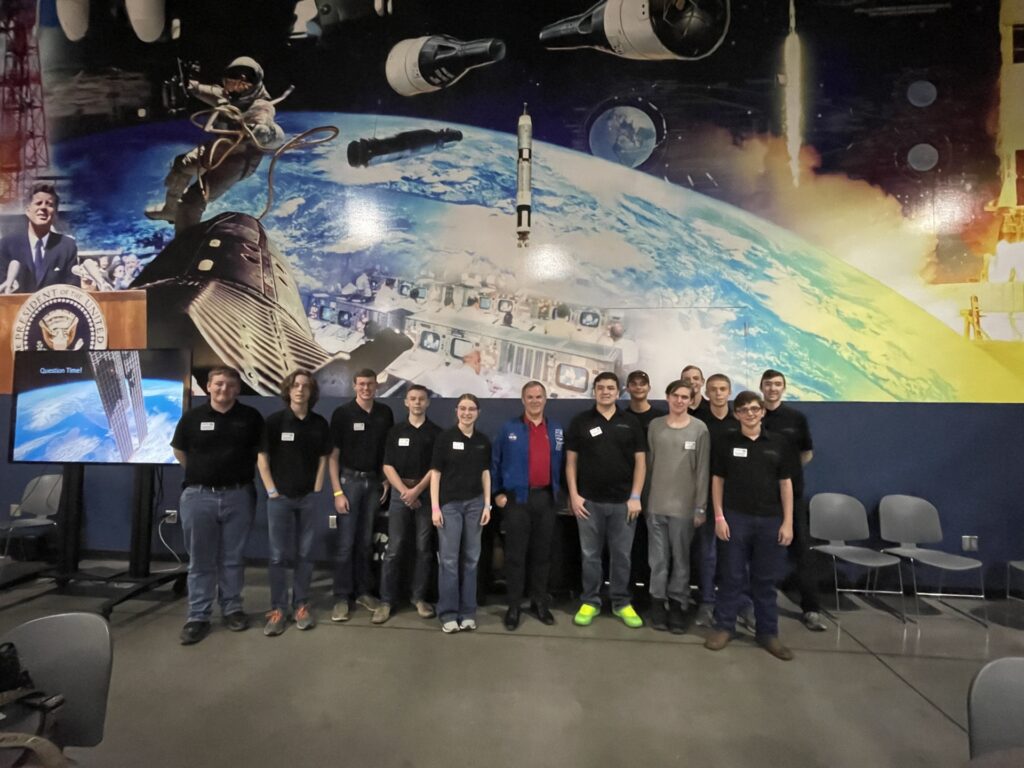4-H Night at NASA is out-of-this-world experience
4-H STEM event helps expand youth horizons through education, hands-on activities
The second annual Texas 4-H Night at NASA was held March 4-5 at the NASA Johnson Space Center in Houston for 144 members of Texas 4-H and their chaperones.

This event invites 4-H families for an immersive experience in science, technology, engineering and mathematics activities. These include the opportunity to interact with real astronauts, a tour of the space station training facility and camping overnight under a real space shuttle.
Derrick Bruton, Texas 4-H STEM specialist, who led the event, said 4-H STEM is more than robots and video cameras.
“This diverse project reaches not just beyond the horizon but beyond galaxies,” he said. “In its second year, this event has expanded horizons and opened many youths’ eyes to the various STEM opportunities.”
Bruton said similar to NASA’s plan to return to the moon, this event’s mission was to reintroduce the aerospace project back into Texas 4-H and share in the renewed excitement about today’s national space program.
“By hosting this event in such a historic facility, we hope to inspire youth to become tomorrow’s scientists,” Bruton said. “We want kids to become problem-solvers, innovators and pioneers in whatever career field they choose. Providing an enriching and experiential program in a fun learning environment is key to achieving that goal.”

The hands-on STEM activities led by space center educators included coding with Sphero robots, creating thermal protection shields, Lunar Mystery – space-themed, escape room-style puzzles — and a payload delivery challenge.
“Youth gained an understanding and appreciation of the history and importance of the aerospace industry from the exhibits, tour and the presentation by an astronaut,” Bruton said. “They enhanced their STEM-based knowledge and skills through the hands-on activities led by space center educators.”
While the education gained at the event is important, the lifelong memories for families who participated together can be even more special.
“There is also great value in the fact that this is a unique family activity for most participants,” Bruton said. “It is not every day that you get to camp under a rocket or space shuttle.”
STEM ambassadors
Texas 4-H STEM ambassadors include senior-level 4-H youth with a passion for STEM and serving the Texans around them, and service is a key part of the Texas A&M AgriLife Extension Service mission.

STEM ambassadors not only initially helped identify the interest in bringing back the aerospace project, but also hosted the event and assisted in leading the activities. Eleven ambassadors, including Kaden Kilburn, attended the event.
“I really enjoyed the experiments,” Kilburn said. “For one experiment, we made heat shields to protect an egg from a blow torch. Through this process, we learned about the importance of heat dispersion and insulation when building heat shields in shuttles.”
Kilburn said it was also enjoyable to help younger members of 4-H learn about the various scientific concepts learned in performing the experiments.
Why STEM is important
With STEM at the forefront of conversations, not only in youth development programs like 4-H but globally, growing the 4-H STEM program is essential.
“STEM projects such as robotics and photography continue to have high and growing levels of participation across the state,” Bruton said. “The goal is to continue to grow other project areas such as aerospace and computer science by providing fun and engaging events and activities like 4-H Night at NASA.”
He said adult volunteer leaders and STEM professionals who help guide and mentor youth will enable 4-H to reach more youth with such life-changing educational opportunities and experiences.
“We also need financial and educational partners to help provide resources and opportunities for youth to learn in a safe and fun environment,” Bruton said. “STEM careers are and will continue to be in high demand, and Texas 4-H is doing its part to ensure the future is in good hands by helping mold and develop tomorrow’s leaders in science.”
To support the Texas 4-H STEM program financially and provide more life-changing opportunities for more youth, visit texas4hfoundation.org.
Story written by Callie Cline, Texas A&M AgriLife Extension Service 4-H and youth program specialist.


